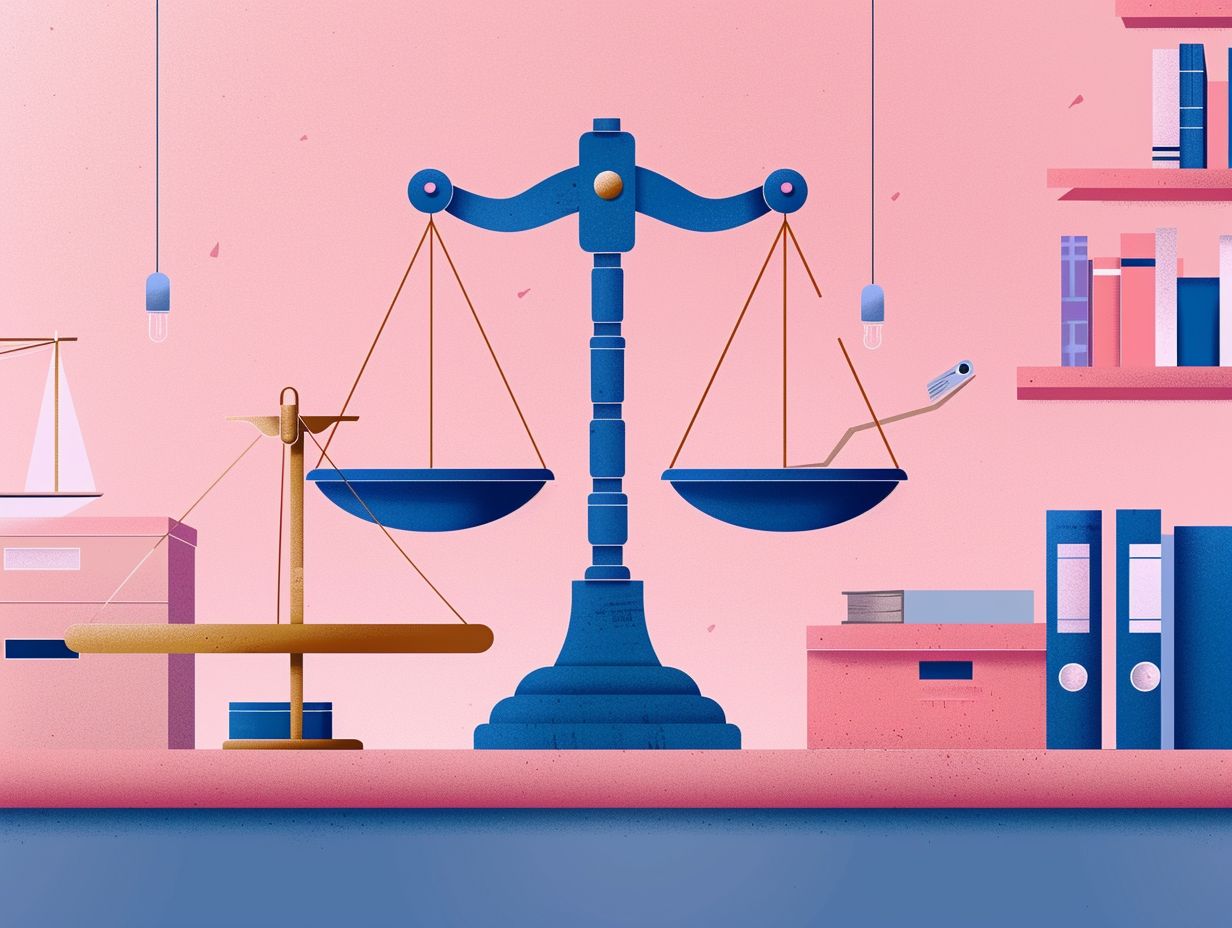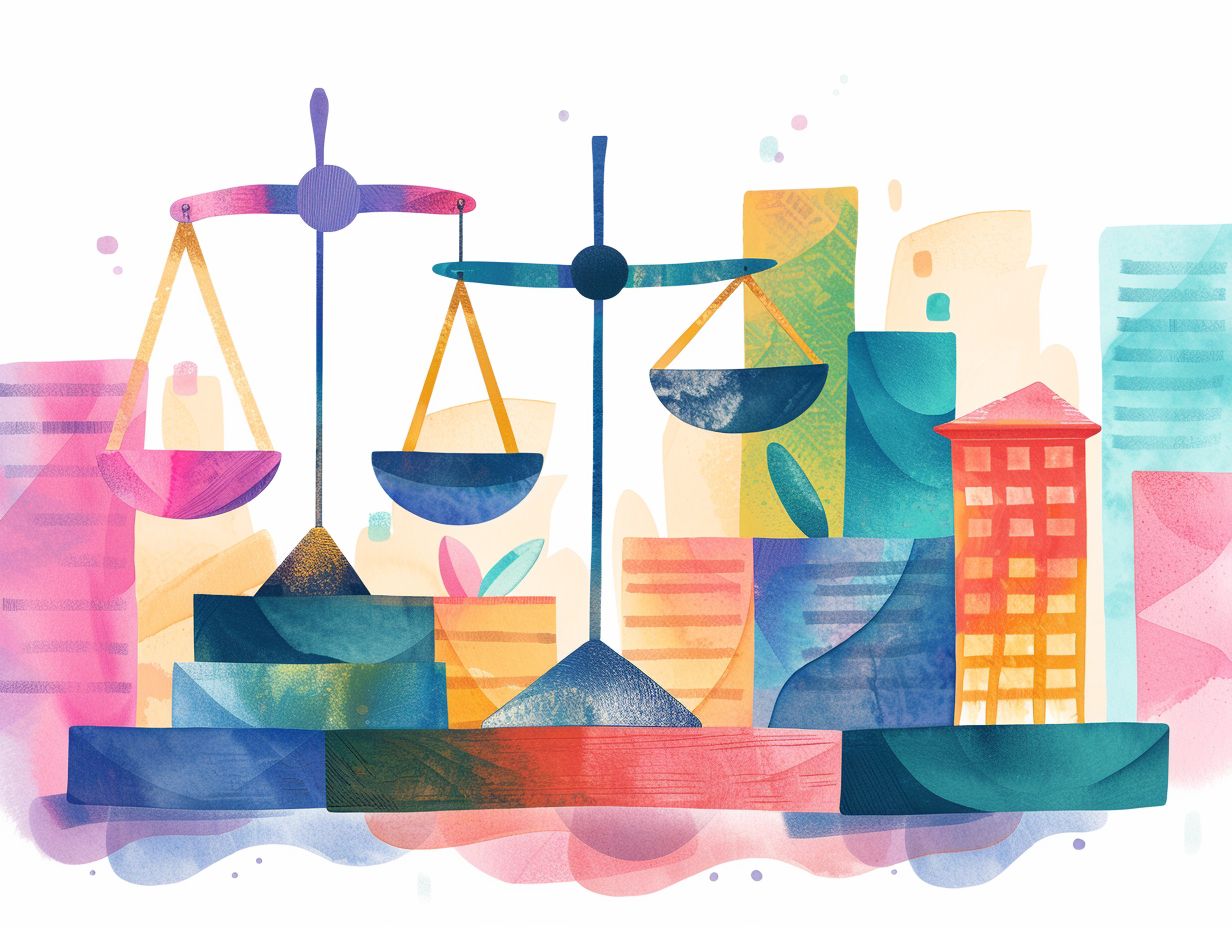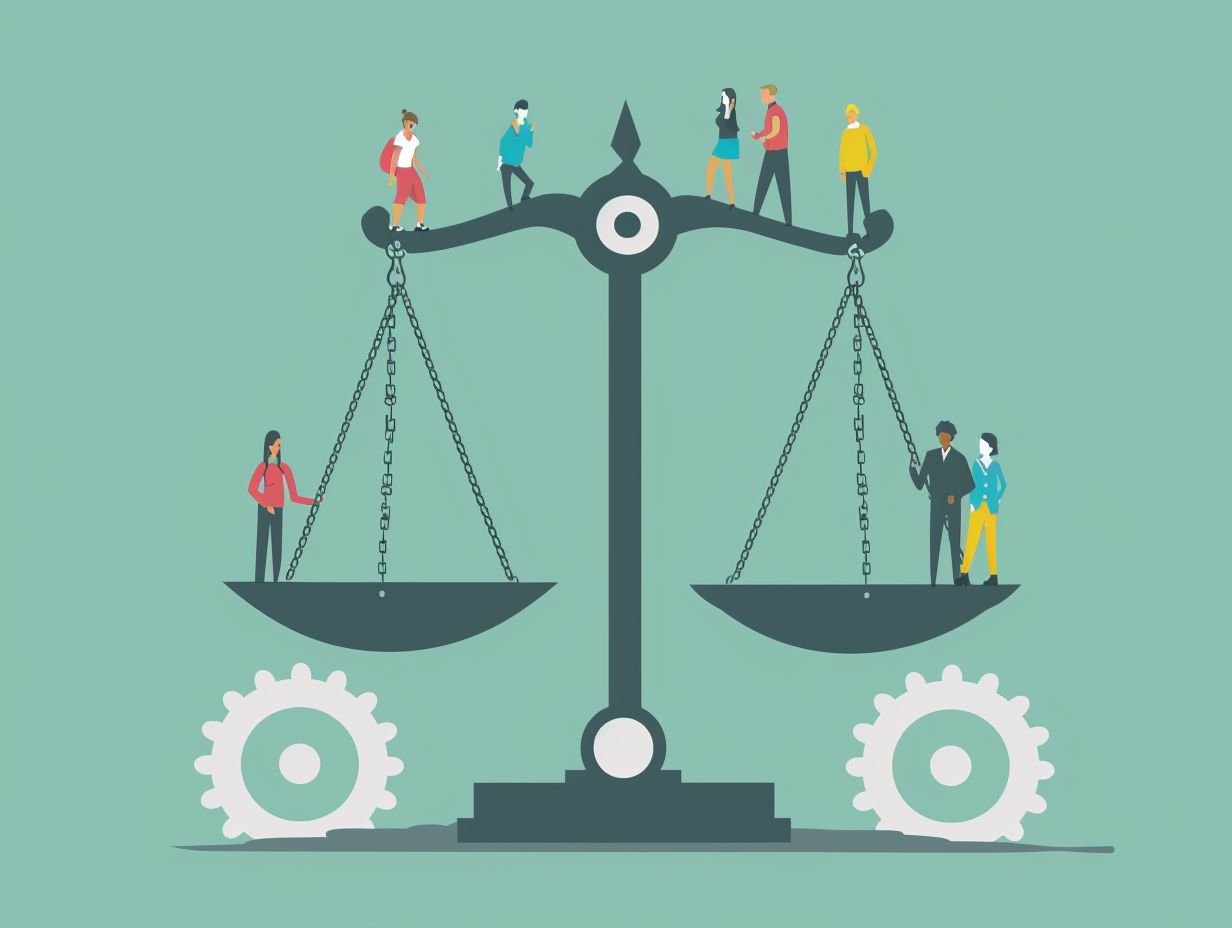Are you considering an unpaid internship in Florida?
It’s important to understand the laws and requirements surrounding these positions.
In this article, we will discuss what an unpaid internship entails, the rights and responsibilities of interns and employers, as well as the benefits and drawbacks of unpaid internships.
We will also explore how unpaid interns can protect themselves, what to look for in an internship, and alternative options to consider.
Stay informed and make the most of your internship experience in Florida.
Key Takeaways:

- Unpaid internships in Florida must meet specific requirements and provide certain rights to interns.
- While unpaid internships can offer valuable benefits, they also come with potential drawbacks such as exploitation and financial hardship.
- Unpaid interns should carefully evaluate and protect themselves while also considering alternative options for gaining work experience in Florida.
What Are the Laws Surrounding Unpaid Internships in Florida?
Unpaid internships in Florida are subject to regulations outlined by guidelines and labor laws to ensure they adhere to specific criteria set by the Department of Labor. This includes the primary beneficiary test, which assesses whether the intern or the employer is the primary beneficiary of the internship experience.
What Are the Requirements for an Unpaid Internship in Florida?
Unpaid internships in Florida are mandated to provide training that mirrors educational environments and ideally aligns with the intern’s academic calendar to potentially allow for academic credit. This requirement ensures that interns have the chance to acquire valuable hands-on experience that supplements their studies and enriches their academic learning.
By coordinating the internship with the academic calendar, students can effectively manage their obligations, upholding their dedication to both their educational endeavors and the internship requirements.
Providing academic credit for the internship not only motivates students but also enhances their learning experience by combining theory with practical application in real-world settings. These specific requirements are designed to establish a mutually beneficial arrangement for both interns and organizations in Florida.
What Are the Rights of Unpaid Interns in Florida?
Unpaid interns in Florida have specific rights under labor laws, including protection against discrimination as outlined in Title VII, and should have a fair and educational experience during their internship. These rights ensure that interns are not discriminated against based on characteristics such as race, gender, religion, or sexual orientation.
Interns should be given meaningful learning opportunities that enhance their professional development. Internship programs should be organized to help interns acquire valuable skills and experience relevant to their career objectives. Employers should comprehend and follow these guidelines to establish a positive and supportive environment for unpaid interns.
What Are the Responsibilities of Employers in Florida?
Employers in Florida are expected to follow internship guidelines, ensuring that the internship primarily benefits the intern’s education rather than solely benefiting the company. This entails providing interns with valuable learning experiences, mentorship, and practical skills that are related to their academic studies.
It is essential for employers to establish a supportive and inclusive work environment that promotes interns to ask questions, seek guidance, and engage in company projects actively.
Offering constructive feedback, defining clear learning goals, and encouraging open communication can assist interns in acquiring valuable experience and cultivating relevant skills for their future professional endeavors.
What Are the Benefits of Unpaid Internships?
Unpaid internships offer various advantages, such as gaining valuable work experience, networking opportunities, and the ability to contribute to non-profit organizations. These benefits can be essential for unpaid interns aiming to develop their careers.
Can Unpaid Interns Receive College Credit?
Many unpaid internship programs offer the opportunity for interns to receive college credit, provided that the internship aligns with their academic goals and meets the requirements set by their educational institution.
To qualify for academic credit, interns must often work a minimum number of hours per week as determined by their school. They may be required to complete assignments or projects related to their internship that can be submitted for evaluation.
It is essential for interns to maintain regular communication with both their internship supervisor and academic advisor to ensure that all necessary documentation and evaluations are completed in a timely manner. By meeting these conditions and requirements, unpaid interns can enhance their academic experience while gaining valuable real-world skills.
Can Unpaid Interns Gain Valuable Work Experience?
Unpaid internships provide valuable work experience by allowing interns to participate in meaningful tasks and projects, thereby gaining practical skills and training that can enhance their future employment opportunities. These opportunities offer a hands-on learning experience that cannot be taught in a classroom setting.
Interns have the chance to work alongside professionals in their field, gaining insight into industry practices and developing valuable connections.
Through real-world application, interns learn how to adapt to different work environments, collaborate with team members, and manage time effectively. Such experiences not only build technical skill sets but also foster personal growth, self-confidence, and a stronger understanding of their career goals.
Can Unpaid Interns Network and Make Connections?
Unpaid interns have the opportunity to network and build professional connections during their internship, forming relationships with coworkers and professionals in the industry that may be advantageous for future career prospects within the company or sector.
Networking possibilities go beyond the office space, as interns might participate in industry events, conferences, or workshops with professionals in the field. By involving themselves in these settings, interns not only acquire knowledge of industry trends and perspectives but also establish relationships with potential mentors and colleagues.
These interactions can result in recommendations, job referrals, or collaborations, boosting the interns’ presence and credibility within the professional community.
What Are the Drawbacks of Unpaid Internships?
Unpaid internships can provide valuable experience; however, there are notable downsides such as the risk of financial difficulty, exploitation, and discrimination. It is crucial to thoroughly assess each internship opportunity.
Can Unpaid Interns Be Exploited?
Unpaid interns may face exploitation if employers do not comply with regulations, resulting in situations where interns are assigned excessive workloads without appropriate educational benefits. This has led to various court cases.
In some instances, employers have faced legal action for exploiting unpaid interns by using them as free labor rather than offering valuable learning opportunities. These legal cases have highlighted the necessity for stricter regulations to safeguard interns from exploitation.
These regulations are intended to establish clear guidelines on the tasks assigned to unpaid interns and ensure that their contributions are genuinely educational rather than merely menial.
By enforcing these regulations, authorities aim to create a more equitable environment for interns and prevent further instances of exploitation in unpaid internships.
Can Unpaid Interns Face Financial Hardship?
Unpaid interns often experience financial difficulties because they are not compensated, especially when the internship lasts a long time and limits their ability to seek paid work, despite labor laws that aim to address such problems. This financial burden can be exacerbated by the expenses related to transportation, professional attire, and meals during the internship.
In many instances, interns are expected to work full-time hours without pay, making it difficult to cover necessary living costs. The uncertainty of securing future employment after the internship contributes to the financial stress felt by unpaid interns.
Lacking financial assistance or compensation, interns may need to accumulate more debt or rely on external support systems to make ends meet, perpetuating the cycle of financial insecurity.
Can Unpaid Interns Face Discrimination?
Unpaid interns may encounter discrimination in the workplace, as reported by sources such as the Orlando Sentinel. This underscores the importance of considering extending Title VII protections to interns.
This issue draws attention to a significant gap in legal protections for interns who may be susceptible to harassment or mistreatment. While Title VII of the Civil Rights Act of 1964 prohibits employment discrimination based on characteristics like race, sex, and religion, unpaid interns often do not enjoy the same protections.
Investigations by the Orlando Sentinel have exposed instances where interns faced unjust treatment or harassment without avenues for redress. Failing to address this segment of the workforce risks perpetuating a culture of exploitation and inequality.
How Can Unpaid Interns Protect Themselves?
Unpaid interns can protect themselves by familiarizing themselves with their rights and the internship process, seeking resources and support from organizations such as CareerSource Central Florida, and ensuring that their internship meets legal standards.
What Should Unpaid Interns Look for in an Internship?
Interns should seek internship opportunities that offer clear educational benefits, align with internship guidelines, and provide meaningful contributions, especially in non-profit sectors where the experience can be particularly rewarding.
Considering these factors can help interns maximize their internship experience. Choosing roles that include structured learning programs, mentorship opportunities, and hands-on experience can significantly improve one’s skill set and future prospects. It is important to ensure that the internship complies with legal guidelines and provides a safe working environment.
Non-profit organizations can present distinctive opportunities to engage in meaningful projects that make a real impact on society, offering a sense of fulfillment and purpose beyond skill development.
What Should Unpaid Interns Do If They Feel Exploited?
If unpaid interns feel exploited, they can report their concerns to the Labor Department’s Wage and Hour Division or seek legal advice from experts like Robert S. Norell, P.A., to ensure their rights are protected.
Interns who believe they are being taken advantage of should also document any instances of unfair treatment or violations of labor laws. Keeping a detailed record can serve as crucial evidence if they decide to pursue legal action.
Reaching out to organizations that support workers’ rights or joining networks of other interns can provide valuable resources and guidance on how to address the situation effectively. By taking proactive steps and seeking assistance, interns can assert their rights and stand up against exploitation in the workplace.
What Are the Alternatives to Unpaid Internships in Florida?
In Florida, alternatives to unpaid internships include paid internships, which provide similar benefits as well as financial compensation. Various opportunities are available through organizations such as CareerSource Central Florida and in areas like Broward County.
Paid internships offer not only valuable work experience but also help students cover living expenses and gain professional development. These internships typically include a structured program with mentors, networking opportunities, and the potential for full-time employment.
CareerSource Central Florida plays a vital role in connecting aspiring professionals with paid internships, facilitating the start of their careers without the financial challenges often associated with unpaid internships. Through partnerships with local businesses, CareerSource Central Florida ensures that participants receive fair compensation for their contributions.
Frequently Asked Questions
What are Florida’s unpaid intern laws?
Florida’s unpaid intern laws refer to the regulations and guidelines set by the state regarding the employment of unpaid interns.
Who is considered an unpaid intern?
An unpaid intern is someone who works for a company or organization without receiving monetary compensation, typically in exchange for gaining experience or course credit.
What are the requirements for an internship to be unpaid in Florida?
According to Florida’s unpaid intern laws, an internship must meet certain criteria, such as being primarily for the benefit of the intern, not displacing paid employees, and providing educational or training opportunities.
Can an intern be considered an employee in Florida?
Yes, an intern can be considered an employee in Florida if they do not meet the requirements for an unpaid internship and are entitled to minimum wage and other employee benefits.
Do Florida’s unpaid intern laws apply to all types of internships?
No, Florida’s unpaid intern laws only apply to internships in the private sector. Internships in the public sector, including government agencies and non-profit organizations, are exempt from these laws.
What happens if a company violates Florida’s unpaid intern laws?
If a company is found to be in violation of Florida’s unpaid intern laws, they may face legal consequences and be required to provide back pay and other compensation to the unpaid interns.

























Rate this article:
Average rating 0 / 5. Vote count: 0
No votes so far! Be the first to rate this post.
No Comments yet!